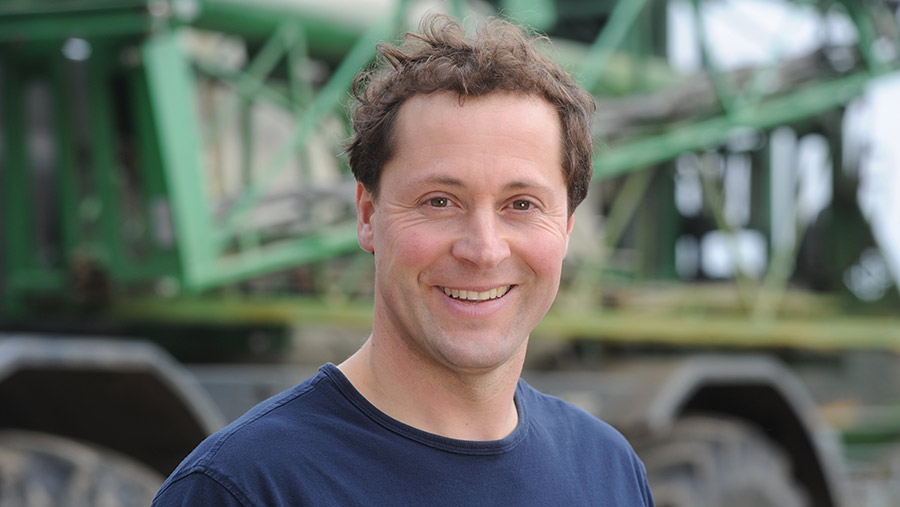Farmer Focus: Barley set to go for feed, not malting
 © Hugh Nutt
© Hugh Nutt January started with an enjoyable daytrip to the Real Oxford Farming Conference.
There was a buzzing atmosphere, although I grew somewhat tired of being repeatedly asked when I was going to convert my conventional farm to organic production and why I wasn’t at the other conference.
The sessions I attended had a one-sided feel, with speakers all preaching from the same hymn sheet.
In these times of oversupplied markets and low prices, the environmental lobby groups seem to rule the roost. Unfortunately there were no feedback forms to fill out.
See also: Read more from our arable Farmer Focus writers
On the farm, the short cold snap finally enabled us to apply the Kerb (propyzamide) applications to oilseed rape crops and foliar manganese to deficient cereals.
Pigeon flocks are now grouping and as usual picking the weakest rapeseed crops to graze while leaving the forward crops untouched.
The winter malting barley now shows a minimal, if any, premium for next season, so the decision has also been made to treat autumn-sown Cassata barley as feed for the first time, with added nitrogen.
Drier weather also gave us a much-needed window to install a replacement farm water reservoir. The older model had become uneconomic to repair and was causing repeated water-quality issues.
The new 36cu m concrete replacement is now operational and was fortunately not as expensive to install as feared. An enjoyable few hours were spent pretending I was a digger driver and not a farmer.
I recently attended my annual National Register of Sprayer Operators (NoRSO) harvesting course at a well-run local contractor’s training venue with the usual sprayer operator topical updates.
We were told chemical manufacturers will no longer be obliged to supply full information datasheets on every chemical can. They have made it the responsibility of the chemical operator to download these from the web and print them.
I wonder if this is a sensible change given the extra scrutiny agrochemicals now face.
In these challenging times for the farming industry, it is important to not revert to the moaning farmer stereotype and instead identify something positive.
Grain markets may be in a mess and receiving the BPS remains a distant dream, but at least fuel prices and interest rates remain low.
David Butler farms just south of Marlborough in Wiltshire in partnership with his parents. He also runs a contracting company and farms about 870ha of combinable crops alongside a herd of 280 dairy cows.

